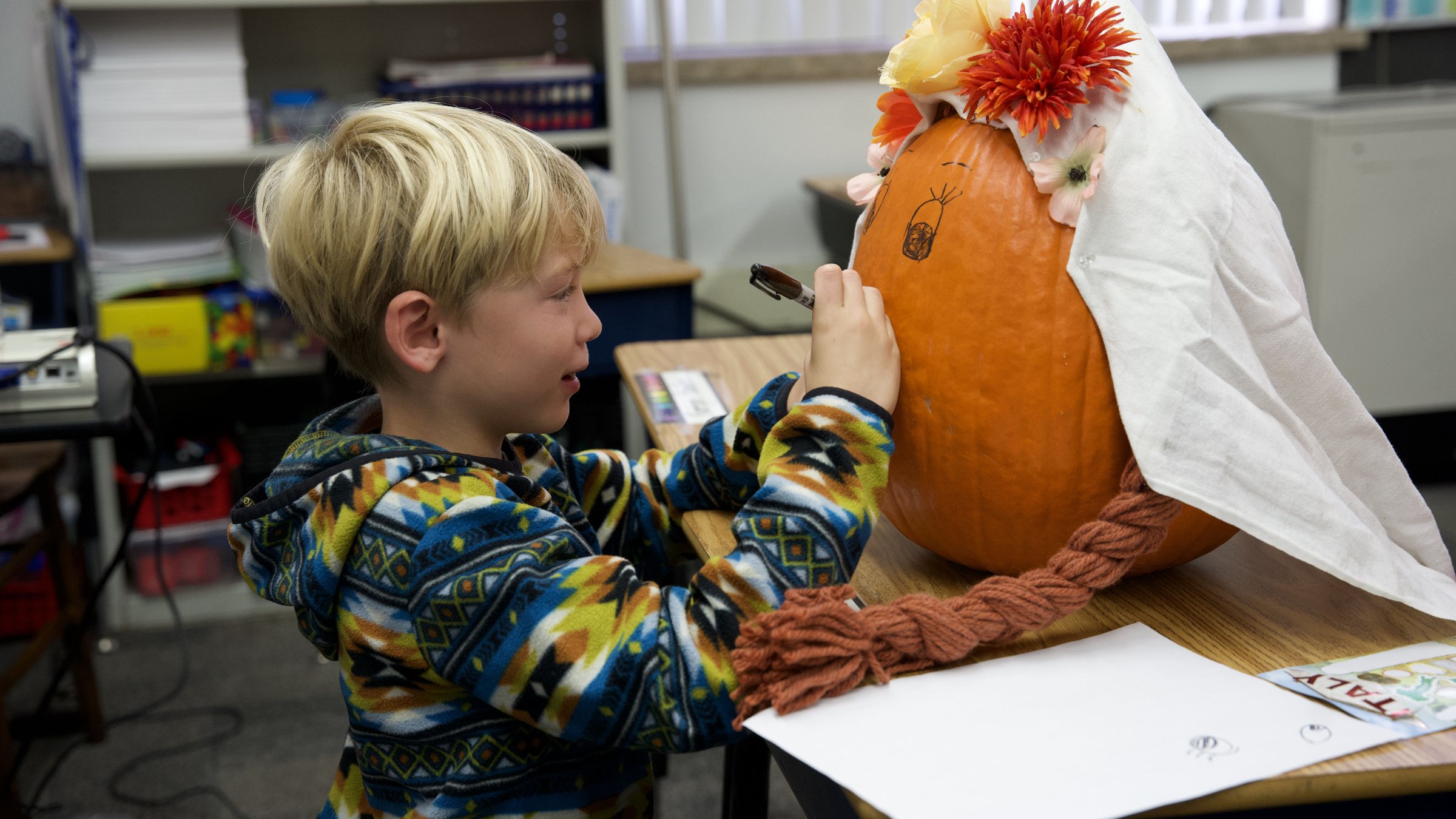For 30 years, Grosse Pointe Park parish's religious education program has used Halloween to teach kids about the saints
GROSSE POINTE PARK — For the last 30 years, on the Sunday before Halloween, St. Ambrose Parish in Grosse Pointe Park has featured a gourdgeous display of pumpkins in front of the church.
However, the parish's fall decorations aren't the typical jack-o-lantern carvings that have become synonymous with All Hallow's Eve. Instead, the parish's display looks ahead to the next day — All Saint's Day — with pumpkins designed in the likeness of the saints.
The saintly pumpkins are decorated by the parish's religious education classes, kindergarten through ninth grade, between morning Masses. Fr. Tim Pelc weaves them into his homily at the 11:15 a.m. Mass and invites the children to present their saint to the parish.
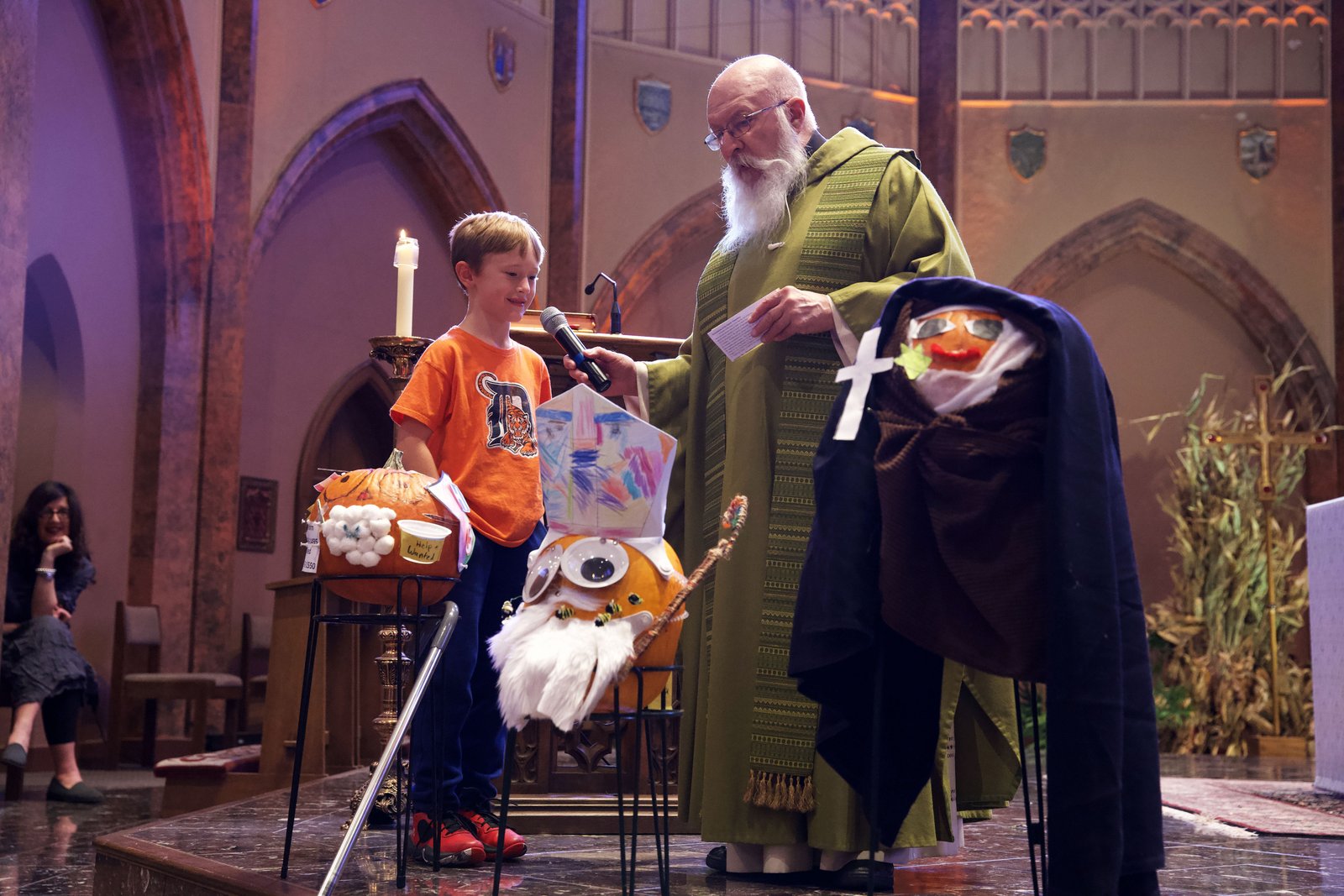
“Halloween is a day of mixed parentage — Christian and non-Christian — and this is a way of catechizing and showing you can still have fun with Halloween in a holy way,” Fr. Pelc told Detroit Catholic.
Fr. Pelc chooses the saints every year, oftentimes based on a different theme.
“It was pandemic saints two years ago, and then we had health care worker saints, and there have been American saints, and then also ancient saints,” said Kelly Woolums, director of religious education at St. Ambrose.
This year, Fr. Pelc chose saints who are patrons of specific work occupations, Woolums said. Woolums then assigns the saints to each class based on what they are learning or on age appropriateness.
The kids decorate the pumpkins with whatever craft supplies they can find, Woolums said, and teachers often bring additional items from home.
This year’s saints included St. Ambrose (kindergarten), St. Martha (Grade 1), St. John the Baptist (Grade 2), St. Zita (Grade 3), St. John of God (Grade 4), St. Veronica (Grade 5), St. Edith Stein (Grade 6), St. Kateri Tekakwitha (Grade 7), St. Katherine Drexel (Grade 8), and St. Charles Borromeo (Grade 9).
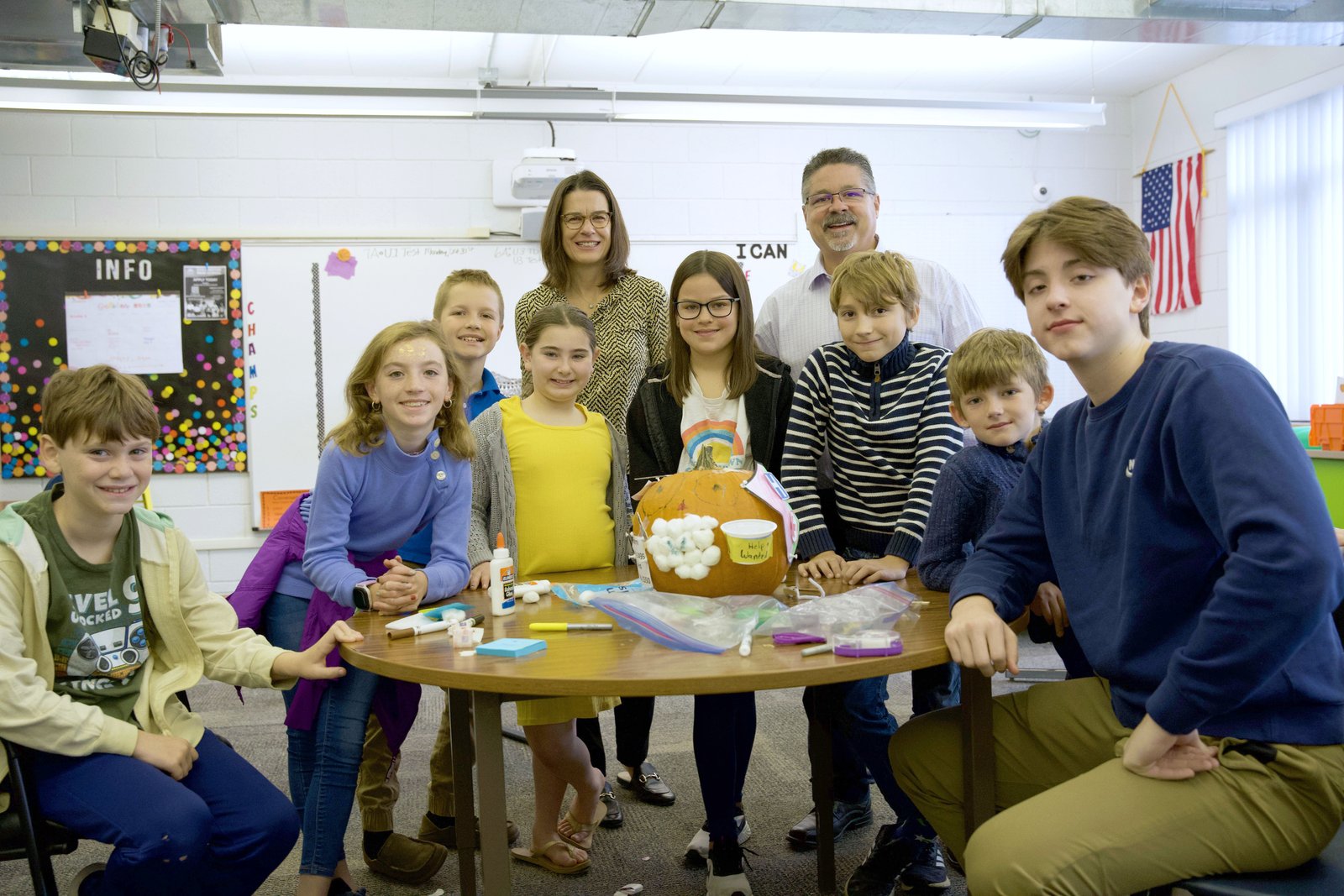
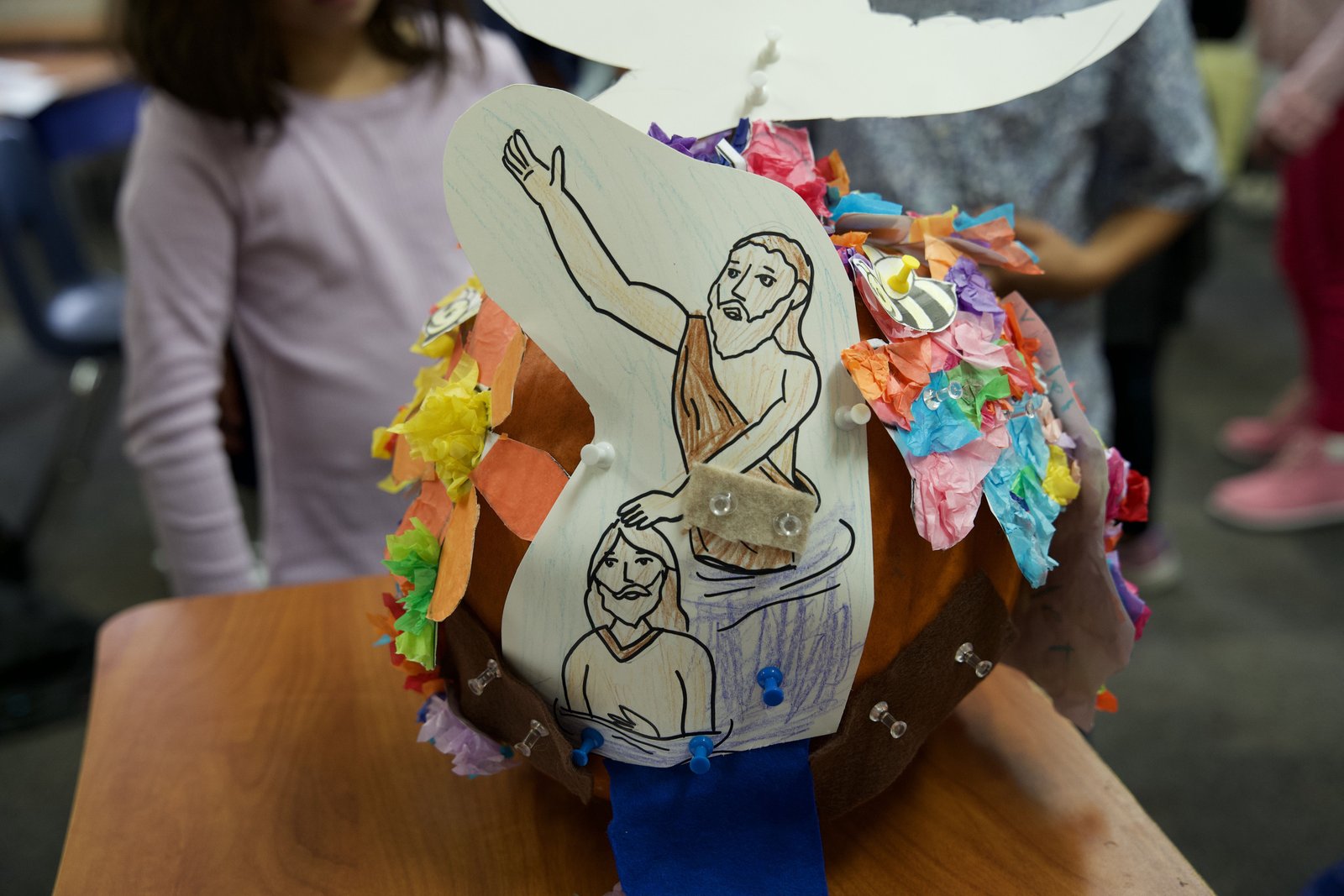
Kindergarten almost always gets St. Ambrose as a way of introducing them to their parish’s patron, Woolums said. The ninth graders are about to be confirmed, so they were given St. Charles Borromeo, who is the patron of catechists, Woolums explained.
“We have never done John the Baptist before, and second grade is learning about the sacraments of first reconciliation and first Eucharist, and so they start with baptism, and the story of St. John the Baptist hits home for them,” Woolum said. “It's tradition — it goes way back, and I think the families remember from year to year. Some people's parents remember when they did it.”
In addition to being a fun tradition, the saintly pumpkins are also part of a fundraiser. After Mass, parishioners are invited to vote on their favorite pumpkin by donating money in a jar associated with the saintly gourd of their choice. The money raised goes to the St. Vincent de Paul chapter at St. Ambrose.
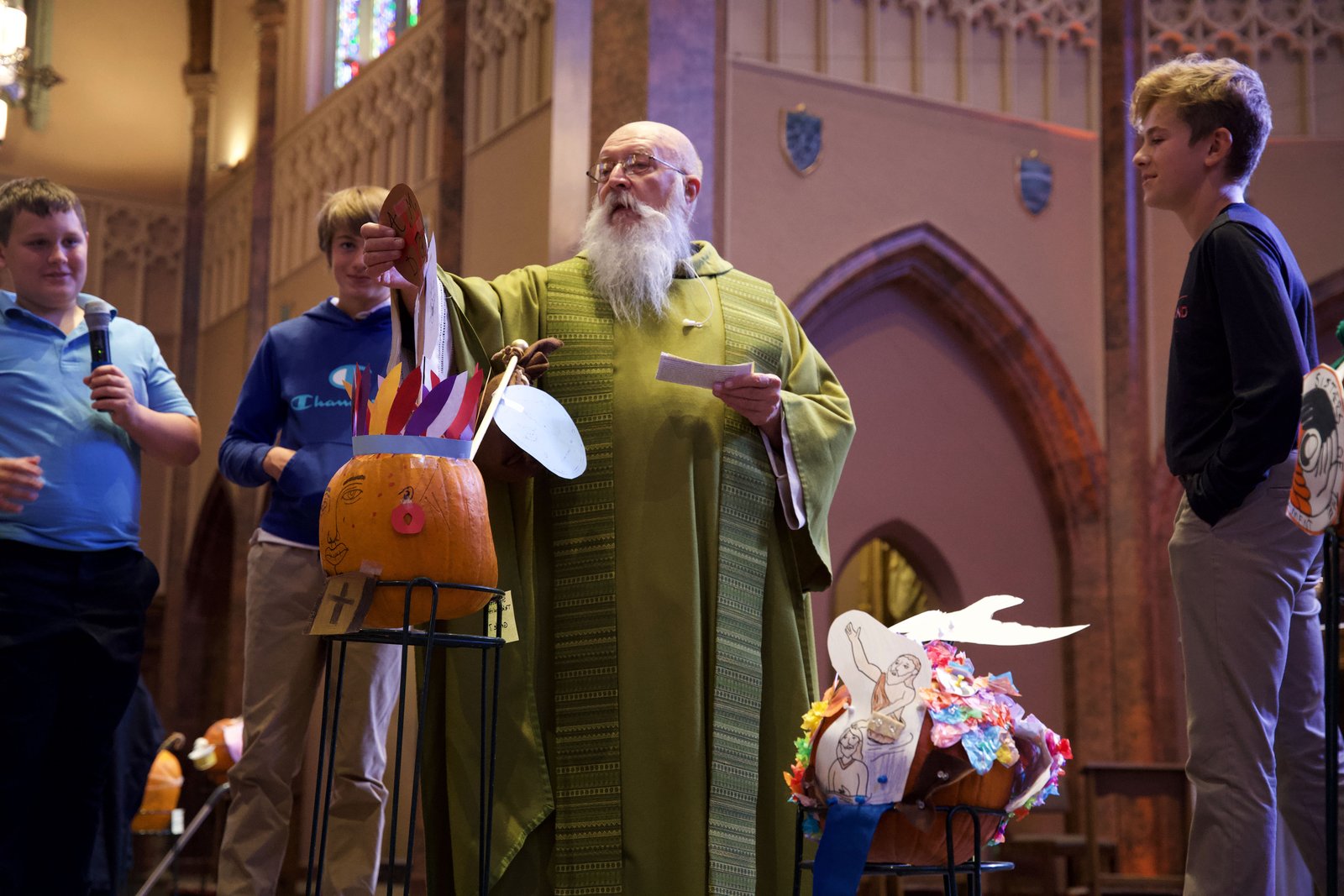
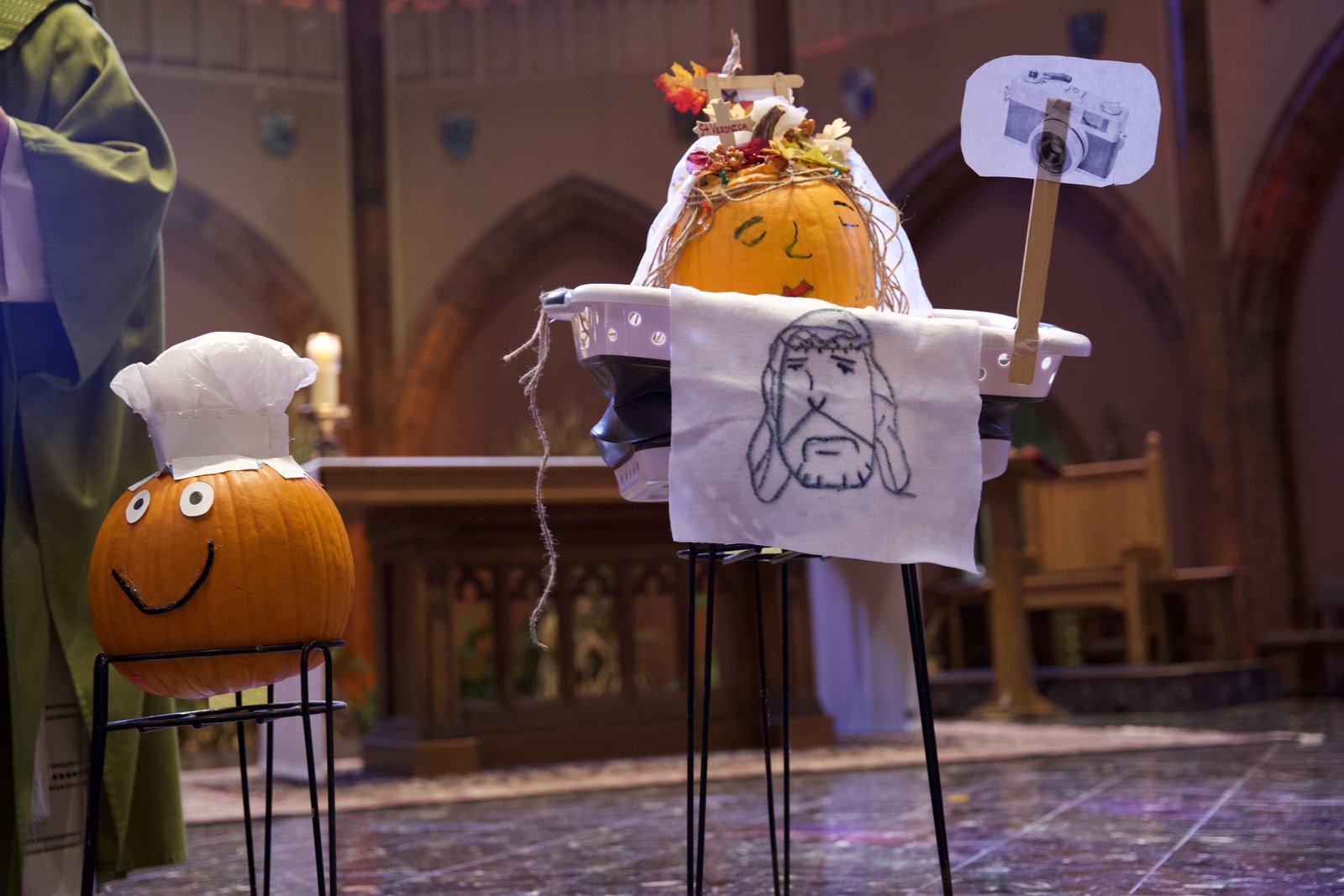
The saints help the faithful to understand that the Lord can lead people into many different paths of holiness, Fr. Pelc told the children during his homily. Everybody is called to be a saint, he said.
“Saints come in all different sizes and shapes, and the call to holiness is universal,” Fr. Pelc said. “If you asked any one of these individuals that we presented today whether or not they were a saint, they might say ‘no.’ But they were (saints) because they used everything in their power to follow the Lord and make things better for the rest of the world, and that is what we are called to do.”
We don’t choose patron saints; patron saints choose us, Fr. Pelc added.
“If something about one of these saints triggered something for you, honor that saint,” Fr. Pelc said. “Say a prayer and bring them into your conversation with God. They are able to help us because life does not end; it changes. So these are the individuals who are there at the ear of God to be able to give us advice and give us entry into the kingdom of God.”
Copy Permalink
Parish life Catechesis Youth ministry


